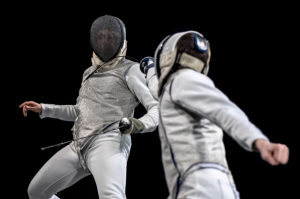Do you have a go-to milk tea flavour?
If it’s anything with brown sugar, we won’t be surprised! Brown sugar milk tea tastes delicious, and it’s alright to indulge because brown sugar is much healthier than regular white sugar, right? You’d be surprised; in this article, we’ll debunk this piece of ‘common knowledge’ with the help of science!
Wait, what? Brown sugar isn’t healthier?
Brown sugar is commonly regarded as a healthier alternative because it contains molasses, highly viscous syrup which has trace amounts of vitamins and important minerals[i]. The truth, however, is that molasses only makes up five to ten percent of brown sugar[ii]! Everything else is sucrose (also known as table sugar). So that means you’ll need to consume a massive amount of brown sugar before seeing any benefits—and this would greatly increase the risk of diabetes, cancer and obesity in the process[iii]. If brown sugar isn’t much healthier than white sugar, why do many of us remain misinformed?
Sometimes, we simply can’t help it
In order to quickly make sense of the world around us our brains often rely on mental shortcuts, or heuristics, to simplify decision-making[iv]. These mental shortcuts lead us to become prone to cognitive biases, which are systematic errors in thinking or reasoning[v], in another words our brains lead us to choose and believe what we think is right, without objectivity or proof. While it is extremely hard to avoid cognitive biases in our daily lives[vi], we can certainly be more aware of them! Here are three common ones to pay attention to, with examples from nutrition for context:

The Confirmation bias
This bias is at work when we inadvertently zoom into or ‘cherry-pick’ information consistent with our existing beliefs[vii]. If we believe that egg yolks are bad for us because of their cholesterol content, for example, we could type the query ‘egg yolk disadvantages’ in a search engine.
The Status Quo bias
Will you continue drinking brown sugar milk tea regularly because you don’t think any alternative could taste as good? Or do you still feel that brown sugar is ‘more natural’ than regular white sugar? If yes, the status quo bias is at work! This bias manifest when we demonstrate a strong preference for things to stay as they are, for fear of losing more than what we’ll potentially gain[viii].
The Halo effect
When we see food products labelled as ‘organic’, we often consider them healthier by default—overlooking properties such as high caloric content or high sugar content[ix]. We see these food products through a ‘health halo’ due to healthy positioning[x], even though agricultural practices have no effect on what goes into the product and ultimately, its nutritional value.

Where else can cognitive biases come into play?
The answer is…on the sports pitch!
Athletes and coaches have to evaluate their own, their team’s, or other players performances and potential regularly, both on and off the field. They also have to make many crucial decisions while facing stressors like temporal constraints and public scrutiny; being aware of cognitive biases can help them to improve the quality of their decision-making processes and minimise lapses in judgement. Such decision-making processes include athletes’ nutrition, training or workout plan.
Knowledge in cognitive biases is also critical for sports scientists! Sports scientists have a lot of data to analyse and interpret, for example, and an awareness of cognitive biases can help prevent them from placing too much weight on specific data or statistics. They could keep an eye out for the recency effect, which arises when the latest data is viewed with greater importance[xi]. Or are they experiencing the primacy effect and putting more emphasis on the first set of data they’ve seen[xii]?
With this knowledge, sports scientists will also be able to make better informed choices on what training or nutrition programs to assign athletes to help them achieve optimal health and performance!
Found what you’ve just learnt fascinating?
You can continue exploring this topic in further detail at PSB Academy, where sports and exercise students study more in depth on the topic of cognitive biases, covered inside their curriculum.
If you’ve enjoyed our brief foray into nutrition science as well, that’s another great reason to consider studying a sports course! Apart from studying subjects like psychology and functional anatomy, our sport and exercise science students dive deep into sport and exercise nutrition too. After all, you are what you eat, and good nutrition is integral to achieve peak sporting performance!
PSB Academy currently offers sports sciences courses ranging from certificate to degree-level. To find out more about the various programmes, feel free to browse our respective course pages or speak to our friendly course consultants. In the meantime, don’t let what you’ve just learnt stop you from grabbing some brown sugar milk tea. As long as you keep a well-balanced diet, we believe you’ll do just fine!
[i]https://www.livestrong.com/article/506766-the-healthy-benefits-of-molasses/
[ii]https://www.nytimes.com/2007/06/12/health/nutrition/12real.html
[iii]https://www.healthline.com/nutrition/too-much-sugar#section1
[iv]https://books.google.com.sg/books?id=FfTVDY-zrCoC&printsec=frontcover&dq=cognitive+biases+heuristics+mental+shortcuts&hl=en&sa=X&ved=2ahUKEwjpyovl1ZbqAhVPWH0KHbsxBgIQ6AEwBHoECAIQAg#v=onepage&q=heuristics&f=false
[v] https://methods.sagepub.com/reference/encyc-of-case-study-research/n57.xml
[vi]https://www.theguardian.com/books/2015/jul/18/daniel-kahneman-books-interview?utm_source=zapier.com&utm_medium=referral&utm_campaign=zapier
[vii]https://books.google.com.sg/books?id=CQBzAwAAQBAJ&printsec=frontcover&dq=confirmation+bias+definition&hl=en&sa=X&ved=2ahUKEwiC2vKB4JbqAhUg63MBHaYKALsQ6AEwAXoECAIQAg#v=onepage&q=confirmation%20bias%20&f=false
[viii]https://pubs.aeaweb.org/doi/pdfplus/10.1257/jep.5.1.193
[ix]https://pubmed.ncbi.nlm.nih.gov/28853950/
[x]https://faculty.insead.edu/pierre-chandon/documents/Articles/Ordabayeva%20Chandon%20Portion%20Size%20Perception%20Appetite%202015.pdf
[xi]https://books.google.com.sg/books?id=qMJ0DwAAQBAJ&pg=PA112&dq=recency+cognitive+bias&hl=en&sa=X&ved=2ahUKEwioofqz1r3qAhVFJHIKHeaaDPoQ6AEwAnoECAMQAg#v=onepage&q=recency%20effect&f=false
[xii]https://books.google.com.sg/books?id=CQBzAwAAQBAJ&pg=PT848&dq=primacy+effect+definition&hl=en&sa=X&ved=2ahUKEwiqhf307b3qAhXK8HMBHZ7JBdwQ6AEwAnoECAMQAg#v=onepage&q=primacy%20effect%20&f=false

 TOP
TOP